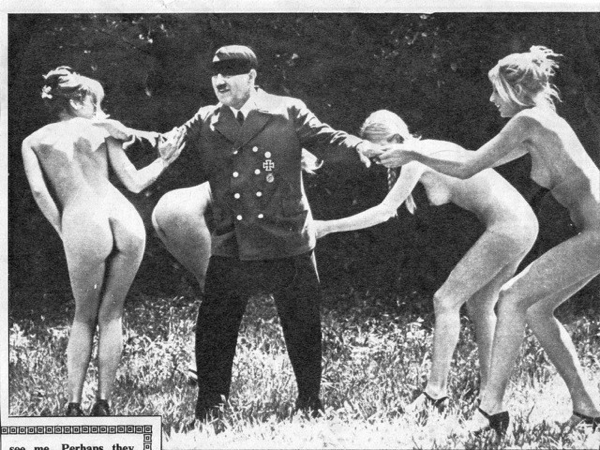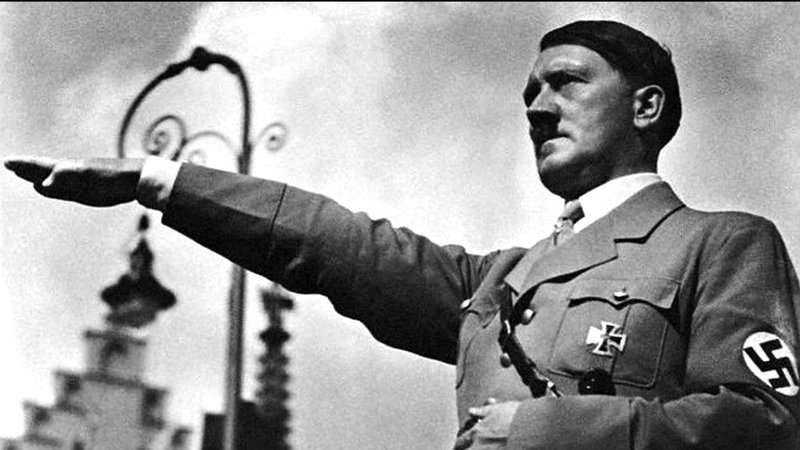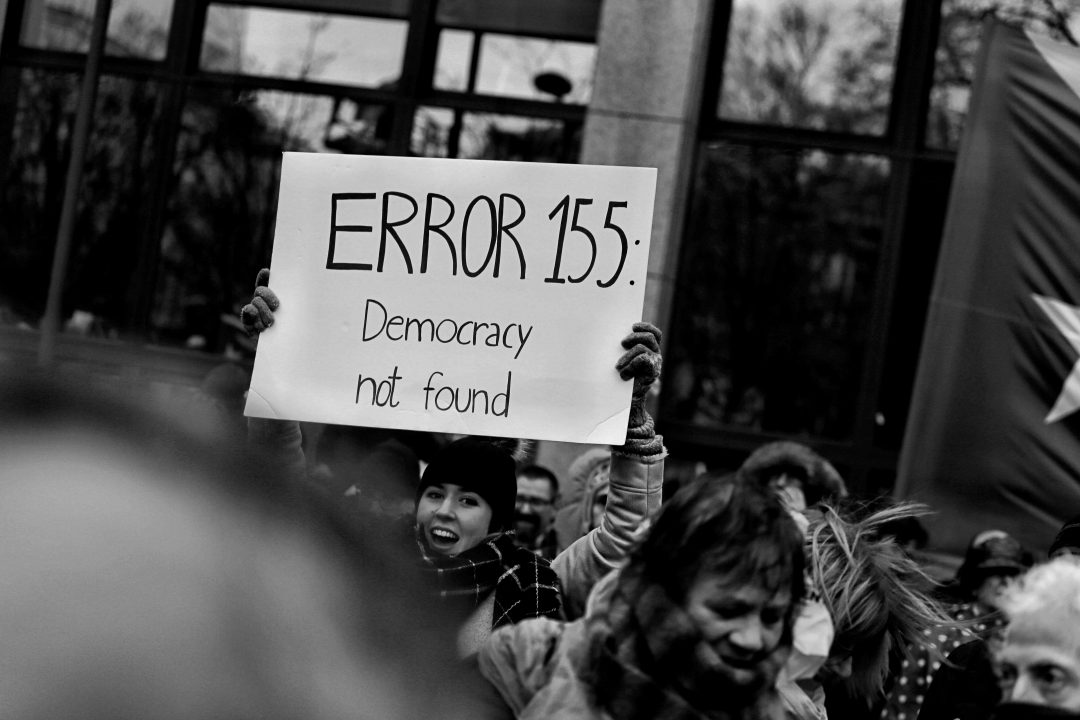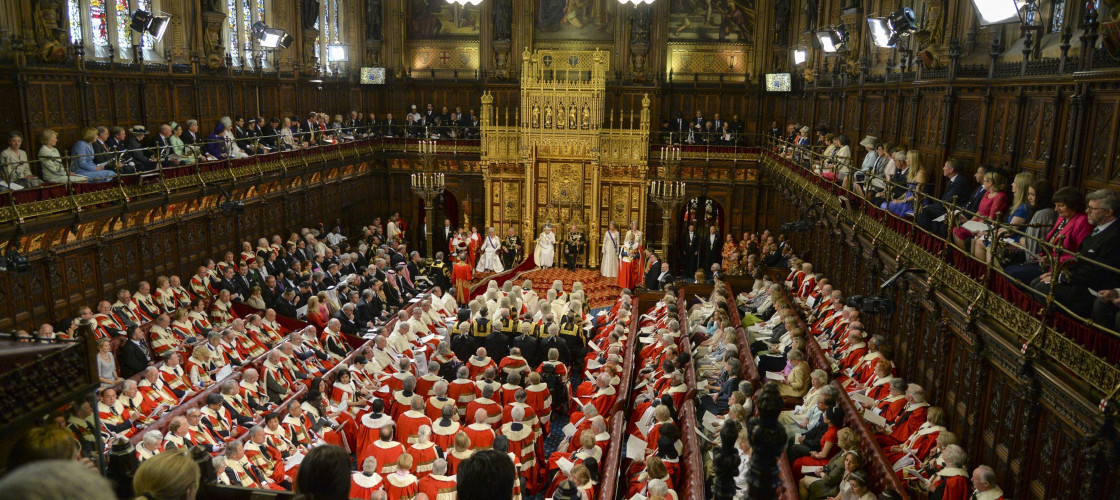The Top Crust
Every human society has a Top Crust formed of the most intelligent, industrious, expert, artistically talented people. Then again, it might have a Top Crust of the most power-hungry, greedy, selfish, ruthless and intolerant people. It varies from nation to nation, from time to time.
Why? A visitor to modern Germany is impressed by the contentment of the people, the civility and prosperity. A visitor in 1944, supposing they would have had the freedom to wander about, would have had a very different experience. Modern Germany is a ‘democracy’ while Hitler’s Germany was ‘fascist’. But what do these words really mean? Is there a more fundamental model of society by which we can analyse its character through more meaningful terminology?
I believe there is. In this essay, I propose a periodic table of ten elements of power.
First let me introduce the idea of a ‘top crust’. Every society has one. The Top Crust holds public office, runs big corporations, designs great buildings, creates whole industries with new ideas, leads up the civil service, the police and the armed forces, wins acclaim for art, is sought for its expertise and generally enjoys the highest status. In a healthy, functional society, the thread binding the Top Crust is competence; the ability to accomplish difficult tasks. The success of a society rests totally on its ability to sustain an effective Top Crust, generation after generation.
The basic idea of elemental analysis is that societies fall ill or even fail because the succession process breaks down and the competent are replaced by the bigoted.
The Y-Junction
Although I can’t prove it, and am well aware that making sweeping judgements over humanity is a perilous exercise, my conviction is that during the formation of every striving individual there comes a Y-junction. One arm leads up to the highlands of competence, the other down down down into the cold, dank gorge of bigotry. Almost certainly, the Y-junction will be met more than once for most people. The path taken is a matter of choice.
This belief in personal choice is not fashionable in today’s world. I don’t care. I don’t follow fashions. I read about people and make my own judgements. Hitler was once a teenager who loved opera and was too shy to approach Stephanie, his sweetheart. Stalin did not emerge from Mum clutching a Nagant pistol. They were both highly intelligent, insightful people who could hardly have failed to understand right and wrong (Stalin was educated in a seminary). They pursued their paths of evil because they succumbed to private satisfactions in harming others. Stronger people would have endured anxiety whilst focusing their energies towards supreme achievements in art, science or technology.
This is another personal view, but I believe the only fundamental difference between top-class artists like Beethoven and Tolstoy and top-class crooks like Hitler and Stalin is that great artists choose to face their anxieties whilst intellectual gangsters choose to smother their anxieties under vindictive self-satisfactions of the vilest kind.
What is a Bigot?
At the kernel of every bigot is a frightened child. Once upon a time, the child glimpsed the truth and got such a fright it plastered out reality with a billboard. This billboard could be a religious devotion, it could be a political conviction, it could be dedication to the rituals of the academic life or it could be upper-middle class materialism. The billboard provides structure and a sense of control that protect the child against the full force of reality. The child leads an apparently secure, smug existence (pontification is a symptom of bigotry), but passes across life without ever achieving adulthood and dies still a child.
There are compensations. The child-bigot never has to face the unpalatable facts of life. We do not know why the universe exists and we probably never will. Our existence is meaningless. What happens after death is a mystery, although oblivion will not be a surprise. All you ever accomplish will be blown away in the dust of time. Indeed, time will overcome every triumph—eventually Beethoven’s Ninth Symphony will vanish from the universe. Time is the ultimate conqueror. Only you can invest meaning into your time alive. The courage to live productively in the face of these truths is the only ticket to adulthood.
Secretly the bigot knows they are living a lie. If an event or person casts doubt on that lie, the bigot senses an existential threat and reacts with fury. Hence the burning of religious heretics, the hatred between communists and fascists, between Catholics and Protestants, the xenophobia of nationalists and so forth.
The relevance of bigotry in any discussion of power is that bigots are incompetent decision-makers. The bigot chose to believe in a lie to escape unbearable anxiety. However, anxiety is a persistent hunter. Having only masked rather than faced their fears, the bigot passes life as a fugitive from those very fears. Anxieties surge back with a vengeance when events lay pressure on the bigot. They make decisions to relieve anxieties, not to resolve the crisis.
This is why serious consequences arise if bigots reach high office. In the UK during the 1980s and 1990s, the government permitted animals to be fed with offal of cattle afflicted with BSE (‘Mad Cow Disease’). As a result, BSE reached the human population through animal products and caused a fatal illness called Variant CJD. So far there have occurred about 180 identified deaths from Variant CJD. Decisions were made by bureaucrats (or Lapine Functionaries as I will describe them below) who lacked the character to change established policy, despite growing evidence of great danger to the public (millions of people were exposed to contaminated products). Hundreds or thousands more people may yet die from Varient CJD. No civil servants were jailed for their criminal irresponsibility.
My estimate from long observation is that the overwhelming majority of any human population are not particularly bigoted, irrespective of whether they are religious, hold a political viewpoint, pursue a career in the professions or in academe. Most are saved by being healthy people who flow across life in the stream of instinct. They create meaning through falling in love, bringing up a family and welcoming grandchildren, enjoying lifelong friends and taking pride in their work. This ‘ordinariness’ is the best that life can offer. When I hear people ask, “Is this all there is?”, I have to wonder what on earth they were expecting.
Thus, most people get washed down the stream of convention rather than evolve into bigots. This is just as well. A society of bigots would be like Germany during the Thirty Years’ War or the Eastern Front of the Second World War; a fight to the last bigot.
The Struggle for Power
I have expounded some thoughts on the Top Crust, competence, bigotry, good and evil. What am I getting at?
Well, I would like to introduce a scheme to analyse societies of all types, from the very sick to the (relatively) healthy. For instance, the United States is reputed to be a capitalist society, yet nowadays only a small proportion of her economic action (I believe no more than 10%) could be classed as ‘capitalist’ within the meaning I give below.
If the US is not really capitalist, then what is it? Like any society, it has a Top Crust that emerged from, and rules through, hierarchies of one sort or another. Perhaps if we examine these hierarchies of power, or ‘elements’ of power, we will find the answer to what sort of society the USA ‘really’ is. We can apply this ‘elemental analysis’ to any industrialised (or at least industrialising) society.
Perhaps some elements of power offer natural habitats for bigotry, while others do not. Perhaps this can explain why some societies are tyrannical while others are (at least superficially) liberal.
The Elements of Power
I’ll introduce my ‘periodic table’ of the elements of power, of which there are ten (the Landed Aristocracy, the Rentiers, the Clerics, the Mob, the Gangsters, the Lapine Functionaries, the Violent Functionaries, the Trade Unions, the Rationalists and the Capitalists)
The periodic table is elaborated below in no particular order. I have tried to develop a mnemonic for the elements, so far without success.
The Landed Aristocracy
The power gained from the possession of land has been fundamental since humans gave up chasing wild game and settled to pursue agriculture. The Landed Aristocracy is typically clannish, with power descending by right of birth usually down the male line, although some of the more sophisticated systems evolved a limited form of democracy (such as the Holy Roman Empire).
Note that the Landed Aristocracy draws rents from tenants, peasants, serfs and slaves. They are not Rentiers, however. The Landed Aristocracy is the bitter enemy of the Rentiers. The Landed Aristocracy rests (literally) on the abiding, plain old earth and is therefore characterised by a deep-seated conservatism in matters of cultural tradition, religion and military duty.
This identification with, and legitimisation by, tradition makes the Landed Aristocracy a natural habitat for bigotry, especially against the disturbing impacts of trade, invention and intellectual insight—hence the animosity towards the Rentiers (especially Jewish ones), the Capitalists (especially Jewish ones) and the Rationalists (especially Jewish ones).
The British Landed Aristocracy was much more open to science and industry than was the case in most of Europe (although generally the relationship with industry was maintained at arm’s length via the Stock Exchange). It was also prepared to yield to pressure for political reform from the Rationalists and Trade Unions. This goes a long way to explain why there were revolutions in France, Russia and Germany but not Britain. Anti-Semitism was nonetheless pervasive.
The Rentiers
The Rentiers are money-lenders. Their natural habitat is the sea port, the market town, the capital city, the shoulders of monarchs raising cash for war. The Rentiers produce nothing at all—they are two-faced dealers. They are good actors; they buy with a scowl and sell by charming promises. Yet the Rentiers are not useless. They are the water in the canal of trade. Without them, nothing moves, trade is dead and so are 90% of us. Especially since the collapse of the gold-based Bretton Woods system of international trade in the early 1970s, the Rentiers have mobilised into giant banks that create and (supposedly) manage the money supply. This means that the Rentiers mass-produce out of thin air the most coveted asset in any society: money! This makes them powerful. The instability of floating exchange rates allows massive turnovers of socially useless but lucrative trading. The modern financial system is the natural habitat of freeloaders, cream-skimmers and speculation bandits.
Note that all corporations listed on stock markets fall under the scope of the Rentiers. This is because the board of directors of any listed corporation represents the shareholders first (it’s the law) rather than customers, employees, or the communities in which the corporation has its premises. This is why listed companies sack vast numbers of employees in a recession. The board of directors is therefore a colonial administration of Lapine Functionaries managing assets to suit the interests of remote Rentiers.
The Rentiers are mentally agile, competitive, curious and innovative. They are also status-seeking and greedy. They are not perfect human beings, but their world is not a natural habitat for bigotry.
The Clerics
The Clerics are the custodians of religious dogmas that define correct beliefs and behaviours as well as the consequences (usually exceedingly unpleasant) of failing to adhere to those beliefs and behaviours. The Clerics rule in the name of a divine entity or entities, often but not always with one hand on a thick book deemed to have been revealed in some way by the divine entity or entities. Historically the Clerics chose who and how many had to be murdered (or ‘sacrificed’ in their terminology) in ghastly ways to please the divine entity or entities (such as cutting out beating hearts). Their hold over a population wanes as education and income levels rise and a life awash with the pleasures of consumption beckons (the United States excepted).
The Clerics identify with, and gain legitimacy from, a story that provides meaning to simple people. The story may have some independent historical confirmation, but its assertions of miracles and eternal life are just a matter of opinion held with a particular conviction called ‘faith’. The power of the Clerics therefore rests on hypnosis. If that hypnosis is contradicted by another story, it’s an existential threat that must be destroyed. In short, the Clerics are the natural habitat of an especially toxic bigotry.
The Mob
When the poor bloody infantry of this world get too pissed-off with the insolent complacency of the Top Crust, they take to the streets and smash everything they can lay their hands on. That is the Mob. Actually, it is not literally everybody; for the most part it is the young, especially the male young, with a taste for violence. The Mob is an ephemeral element of power, since it amounts to such a spectacular acceleration of entropy that no society can suffer it for any length of time. Either the Mob is placated or else that society ceases to exist.
As for the degree of bigotry that might exist in a Mob, typically any society will have its popular scapegoats. In medieval times and then again during the eighty years or so prior to 1945 it was the Jews. Today I suppose it might be cyclists, immigrants and bankers. The Mob has an instinct for collective targeting of these scapegoats, even though individuals in the Mob may not be particularly bigoted.
An unusual development can occur if abuse by the Top Crust is sustained against a population. In this case, the Mob can crystallise into a criminal organisation with a hierarchy, modus operandi and vision (see ‘Gangsters’ below).
If such a ‘terrorist’ organisation becomes the Top Crust of a country, what follows will almost certainly be a most unpleasant experience.
The Gangsters
Organised crime can occur for a number of reasons.
The Prohibition era of the United States is widely credited with having enabled numerous scattered groups of small-time thugs and racketeers to coalesce into large, powerful organisations with sophisticated financial arrangements that rendered them virtually beyond the law (a.k.a. the Mafia). Many argue that the ongoing ‘prohibitions’ of cannabis, LSD, amphetamines and so forth likewise sustain criminal empires.
As noted in the previous section, organised crime can also occur after sustained oppression by a top crust. The rise of the IRA in Northern Ireland and Hamas and Hezbollah in the Middle East are examples (as was the Irgun in post-WW2 Palestine). These groups are classed as ‘terrorist’ as they are not the Violent Functionaries of a nation state recognised by the international community. Since these organisations are born of bigotry, they are natural habitats for bigotry also.
The Nazi Party prior to 1933 had many of the characteristics of organised crime. Violence was promoted and used to intimidate political opponents (notably the Communists). After Hitler’s rise to power, the Nazi Party functioned straightforwardly as sovereign piracy, increasingly larcenous and murderous in its operations, including the theft of an estimated $7Bn (1940s dollars, that is) from the Jewish population of Europe and the murder of 6 million (or more) of that population. Despite this, Hitler’s personal popularity remained high until late in WW2.
The Communist Party of the Soviet Union under Stalin was similarly a gangster operation, albeit one with a better sense of self-preservation than Hitler and his Nazi Party (Stalin was never dumb enough to declare war on the USA).
With the possible exception of the Clerics, the Gangsters form the most dangerous sort of top crust. The main difference is that the Clerics do terrible things out of ‘virtue’, whereas the Gangsters are lured by the delights of vice.
The Lapine Functionaries
The Lapine Functionaries are well-educated, intelligent people whose survival strategy rests on obedience. Through serving power, they hope to be safe. On the whole, this survival strategy has stood the test of time. Ask any lawyer, accountant, banking executive, plc director or senior civil servant (through the window of their top-of-the-range SUV).
The Lapine Functionaries are servile, cunning, duplicitous and they are good actors. They do not recognise objective truth and lies. Rather, they defend orthodoxy as laid down by the Top Crust and condemn heresy as laid down by the Top Crust. In this respect they are like the Clerics, except that they lack the murderous vengefulness of the Clerics. They are normally law-abiding. Their aversion to violence probably arises from painful memories of getting beaten up at school.
The principal vice of the Lapine Functionaries is snobbery. Because they had to crush themselves into the discipline of their chosen warren, they are intensely status-conscious and materialistic. They must have compensations for their sacrifice! The Lapine Functionaries are thus inherently bigoted. With their aversion to violence and servility to power, they are content to let ‘official’ violence proceed against the enemies of the Top Crust.
The Lapine Functionaries become dangerous when power is being abused, since they serve power and will perpetuate abuses. A high-status group that tacitly approves of violence by other elements, or even helps to organise violence, legitimises atrocity.
The Violent Functionaries
The military, the police, the secret services and private military contractors comprise the Violent Functionaries. Their survival strategy is servility to the Top Crust. They inflict violence to meet the demands of their clientele.
In the UK, the police and the military have maintained generally high standards of conduct in recent years. I’m not saying they are perfect. Atrocities have occurred and continue to occur. All a society can do is maintain its vigilance and eradicate deadly imperial hang-overs such as the attitudes that led to the Bloody Sunday killings in Derry, Northern Ireland in 1972 (it was by no means the only mass shooting around that time in Northern Ireland).
In other countries and at other times, it has been of course a totally different matter. Stalin’s Violent Functionaries (the NKVD) murdered more than 800,000 Soviet citizens and foreign nationals. One single violent functionary, Stalin’s chief executioner Vasili Blokhin, was personally responsible for the execution of 7,000 Polish officers and officials in the Katyn Forest in 1940. Despite being the most prolific killer in recorded history, Blokhin remains staggeringly unnotorious.
I’m not even going to talk about Hitler’s Violent Functionaries.
The Violent Functionaries may include bigots, but normally such people will not reach high rank. If they do, then that society will probably be defeated in war (viz Nazi Germany). The reason is that incompetence is more spectacularly revealed in the military than any other element of power. The armed forces long ago learned that incompetent leaders invite disaster. The classic case was the entirely avoidable collision of two Royal Navy battleships in 1893 (HMS Camperdown and HMS Victoria) during peacetime manoeuvres in fine visibility. HMS Victoria was lost with 358 sailors. The shoddy performances of the British Army during the Crimean and Boer wars were also wake-up calls to reform the selection of officers for high rank.
Having said that, Violent Functionaries are trained, and by inclination disposed, to solve problems through violence. This means the rule of Violent Functionaries is harsh whether it is bigoted or not.
The Trade Unions
Anyone who lived in the UK through the 1970s will be well aware of union power and what happens when it gets out of hand. They will probably be less aware that managerial incompetence and the apathy of the City of London’s Rentiers created fertile ground for union militancy, but I shall not digress.
Trade Unions are just what it says on the tin: the collectivisation of non-managerial employees to confront the interests of the Capitalists and Rentiers. Through collective bargaining Trade Unions hope to increase wages and improve working conditions. Experience showed that in the absence of Trade Unions, most Capitalists of the nineteenth century took advantage of their power (there were honourable exceptions, such as New Lanark).
In this context, any collective representation of the working people counts as a ‘trade union’. The Petrograd Soviet counts as a trade union in my periodic table, even though it called itself a ‘city council’.
The Trade Unions seek to let everyone have a voice. All workers are ‘equal’. Because of this, Trade Union power tends not to be intelligently or consistently directed. The main danger is that the Trade Unions provide a ladder by which Gangsters or Rationalists gain power over the Lapine and Violent Functionaries and thereby form a tyranny (the Soviet Union being a case in point).
The Rationalists
The Rationalists promote reasoning on the basis of what they consider to be evidence, as opposed to what they consider to be superstition, prejudice or blind faith. The problem is that the Rationalists come in such great variety. At their best, the Rationalists warn us about the dangers of Climate Change, cigarette smoking, obesity, and keep an eye out for incoming asteroids. At their worst, they are dangerous radicals fronting criminal organisations. Hitler was a Rationalist. His warped credo appealed to anti-Semites and anti-communists and he gained power.
In this vein, the Rationalists may form the kernel of an alternative intellectualism that challenges the Top Crust. Should the Top Crust fail, this alternative intellectualism can form the ideology of the next Top Crust.
In general, Rationalists are ignored unless they are useful to the Top Crust. The more objective the Rationalist, the less likely the Top Crust is to heed them. Governments pay lip service to Climate Change by promoting wind turbines and ‘the hydrogen economy’ (I just can’t stop laughing) whilst doing nothing to address cheap air travel or the grotesque moral and financial subsidisation of road transport.
Economists who rationalised the power-grab of the Rentiers during the 1980s rose in status and have maintained their status. Such Rationalists are like minstrels playing tunes to please the monarch during the exercise of power.
Moving to the loon end of the spectrum, Hitler actually became the monarch (if only through the most unusual of circumstances). Such extreme opportunists are bound to be bigots, since their rhetoric is typical of power-seekers: mysterious, obscure and hypnotic. Truth is deadly to such rhetoric.
The main roles of the Rationalists, then, are that they supply pleasing music for the exercise of power and they may form a shadow power that the incumbent Top Crust must heed. Marxism is the abiding ‘shadow power’. Rationalists of interest to the Top Crust will normally be bigoted opportunists spouting emotionally-charged rhetoric.
The Capitalists
Finally we come to the Capitalists! Last but not least. Capitalists are leaders, visionaries and organisers. They are energetic people with ideas and the determination to realise those ideas. They use money, people and machines to create customers (and jobs). If they are good at it, they will earn more money from their customers than they spent creating those customers in the first place. Then they are ‘in business’.
That’s what Capitalists do. They take money, people and machines and they create customers (and jobs).
They are distinct from the Rentiers, who lend money to others at interest in order to avoid getting involved in ‘trade’. Capitalists are action-people working in the complex, dirty jungle at ground level. The Rentiers just lounge in glass pricks shuffling bits of paper.
Capitalists must be open-minded, innovative, industrious and confident. If they do not set out with those qualities—and plenty do not—then they acquire them. They must develop the skills to cope with ambiguity, pressure, taking calculated risks and endless people problems. This is not the natural habitat of the bigot. A capitalist will either outgrow their prejudices or else fall by them.
None of which is to say that Capitalists are perfect human beings. They tend to be self-centred, blindly goal-oriented and disagreeable, or if agreeable it is probably dissimulation. They are good actors and like the Rentiers buy with a scowl and sell by charming promises.
Recap on the Elements of Power
This is the full list:
- Landed Aristocracy
- Rentiers
- Clerics
- Mob
- Gangsters
- Lapine Functionaries
- Violent Functionaries
- Trade Unions
- Rationalists
- Capitalists
In any society that has achieved at least a modicum of industrialisation, the above elements struggle for power. The struggle will go on for as long as that society lasts. Sometimes one element will gain the advantage, usually in alliance with other elements.
Currently in the UK and the USA, indeed, all Anglophone nations, the Rentiers hold the pre-eminent position assisted by the Rationalists, the Lapine Functionaries and the Violent Functionaries, whilst being occasionally opposed by the Mob and gratified to handle the ill-gotten gains of the Gangsters. Clerics, Trade Unions and Capitalists have little influence at the moment. That is why the recovery from the Great Recession of 2008 has been so feeble. James Rickards explains in his book The Death of Money why he believes the Rentiers will lose power in a spectacular financial collapse. I believe he is right—Sovereigns of the Collapse is all about a world after that financial Armageddon.
Applying Elemental Analysis of Power to Past Societies
USSR: Power was won by an alliance of Rationalists and Gangsters (Stalin was a bank-robber) through the Trade Unions but then a clique of Gangsters (the Bolsheviks) seized power by control of the Violent Functionaries with support from the Lapine Functionaries. All other elements were suppressed to the point of irrelevance. After Stalin’s death, the role of the Lapine Functionaries increased while the Gangsters and Violent Functionaries declined.
Nazi Germany: Hitler and his core clique were Gangster Rationalists with a warped analysis that gained support from the Landed Aristocracy (not just in Germany), the Rentiers (not just in Germany) and the Capitalists (not just in Germany) and later from the Violent Functionaries, the Lapine Functionaries, most other Rationalists and the Mob. The only elements not part of Hitler’s society were the Clerics and the Trade Unions (and the Jewish and Romany peoples obviously). The gamut of support for Hitler is truly shocking when viewed under elemental analysis. The terrible lure of fascism must not be underestimated.
Questions
How is an element of power identified? The periodic table above comes from my reading of history. I have thought long and hard about how power is concentrated and how it is exercised. Why does the character of power spread across such a broad spectrum, from Pol Pot’s Cambodia to the Landsgemeinde of Switzerland? The periodic table collects those features of society that have come up repeatedly as being part of the abiding competition for power. Some elements of power have never dominated the Top Crust (e.g. the Lapine Functionaries), but they have been instrumental in conducting power to points of action. Lapine Functionaries organised the ‘Final Solution of the Jewish Question’, for instance. They are instrumental to the success of any dictatorship. Having said that, it is clear that boiling down the complexity of power-politics into ten basic elements is contestable. You, dear reader, are welcome to offer your own periodic table.
What about the news media? For the most part the news media fall within the Rentier element, being corporations listed on stock exchanges. Most journalists are not influential (or insightful) enough to be part of the power struggle. The more outspoken join as Rationalists at various locations along the spectrum between objective and cuckoo.
Self-Employed People? They are not relevant in the power struggle. The self-employed are individualists by nature and have no self-conscious identity through which they gather power to challenge the Top Crust. A self-employed person might gain influence through being a Rationalist, say by achieving fame as a novelist or a journalist, but not from being self-employed.
Academics? This varies from subject to subject and depends on the ambitions of the individual. Philosophers are unlikely to be involved in the power struggle, whereas economists may join as Rationalists of a more or less opportunistic nature. Climate science has become politically significant; researchers may find it hard to avoid joining as (objective) Rationalists. Under tyrannies, academics from a wider range of subjects may join the power struggle as Lapine Functionaries or Rationalists (for instance, Iranian physicists working on nuclear weapons programs, or engineers like Gerry Bull creating superguns).
Is There an Ideal Society?
Short answer: no. Longer answer follows.
The belief that an ‘ideal’ society is possible is an abiding and dangerous myth, especially on the so-called ‘left’ side of the spectrum. Left-wing airheads believe we must rip everything down and reconstruct a new society based on ‘fairness’ and ‘equality’. This kind of fluffy idiocy takes us to Paradise one neck-shot at a time.
Note that there are also right-wing airheads. They believe wealth is created in the financial markets and that trickle-down will resolve the ills of unfettered usury. Such people are actually more of a problem as they currently hold power in the Anglophone nations.
But let us get back to the question. Sensible people will agree that Norway is a better place to live than North Korea (unless you are Kim Jong-un). Norway is also a better society than the United Kingdom. Norway has the highest Human Development Index in the world (the UK’s HDI is ranked at 13th in the world, very high, but not as high as Norway’s). Norway’s Gini index is 24.8, while that of the United Kingdom is 33.5. The big shame of the UK is debt. Combined public and private debt were an estimated 313% of GDP as of New Year 2018 while Norway’s debt was 169% (which still seems very high). According to the same Wikipaedia page, the debt of Liechstenstein was zero back in 2001. I do not know whether it still is, or whether I believe these numbers, but there it is.
Obviously there is more to a society than its high-level numbers. I have never lived in Norway, so I cannot comment on whether it is actually a ‘better’ place to live or a ‘better’ society than the UK. I have lived in Switzerland, Canada, the United States in addition to the UK, and I have had close dealings with life in Germany, France, Sweden and Russia. Out of all these places, the only two I would even consider moving to from the UK would be Canada (preferably) or the USA (possibly). I do not like European societies. They are overly bureaucratised and do not respect privacy. Language is also a factor, of course, although it would not stop me from moving if I perceived broader advantages.
That said, ‘society’ is in the eye of the beholder. I expect the aforementioned Vasili Blokhin, Stalin’s chief executioner, really loved living in the hell-hole that was Stalin’s USSR; he got to neck-shoot thousands of people! Similar comments apply to Lavrenti Beria and other bastards amongst Stalin’s heelers. Writing dystopian novels has taught me that hell and heaven are sides of the same coin.
I will say this: there is no such thing as an ‘ideal’ society, but any society can be improved. Every ‘democratic’, ‘civilised’ society in the world is corrupted by the degenerate social contract of affluence. The Rentiers subjugate the people by tempting them into debt, keeping them happy in a zoom-zoom culture of fast cars, suburban houses and cheap holidays in the sun, funding the whole racket off Ponzi financing. Just as the cotton-picking slave culture of the Antebellum South ruined the soil, so the Ponzi finance of the Rentiers’ scam ruins the currency and infantilises the people in the process. This racket will come to a bad end (be under no illusions about that). We can do better.
No society can provide real freedoms, real opportunities and real wealth unless the people are adults. They must understand that criminals are not ‘victims’, everything has to be paid for, everyone has to be respected, snobbery and usury are social poisons. Personally, I believe no genuinely legitimate society can exist in the absence of a gold standard, comprehensive state education to graduate/time-served level, strong armed forces, abhorrance of debt, respect for self-discipline and intolerance of the barbarity of motor traffic in its current form. Such a society would control the power of Rentiers and Capitalists by banning remote investment (i.e. banning public listed companies and monolithic investment banks). The financial sector would be a mass of small banks integrated into local economies of public sector and private enterprises in line with the German Landesbank/Sparkassen model (so loathed by Wall Street and the City precisely because it presents the correct social model of finance in contrast to Rentier abuses).
Of the ten elements of power, which would dominate this ‘better’ society? The answer is ‘none’. Some would be represented in the endless conversation of parliament: the Landed Aristocrats, the Rentiers, the Capitalists, the Trade Unions, the Rationalists and the Clerics. The burden of keeping the Rentiers and Capitalists under control would lie on the Landed Aristocrats, the Trade Unions, the Rationalists and the Clerics. The concept of ‘trade union’ would need to be much broader than at present, with a self-conception of guarding society against the temptations of usury and the rise of oligarchies. The view of Landed Aristocrats as effete fossils would need to shift to a role as guardians of tradition and probity. The Lapine Functionaries and the Violent Functionaries would answer to the public interest. The Mob and the Gangsters would not be significant if the whole lot shook down into a functional system.
Could it happen? If the people are wise, then yes, it can happen. If they are fools, they will be damned to dystopia.
In Conclusion
The Ten Elements of Power is offered as a personal view of the struggle for power. I believe it is much more useful than squabbling about ‘socialist’ societies or ‘capitalist’ societies, as these terms do not reflect the complexity of power structures that actually occur.





